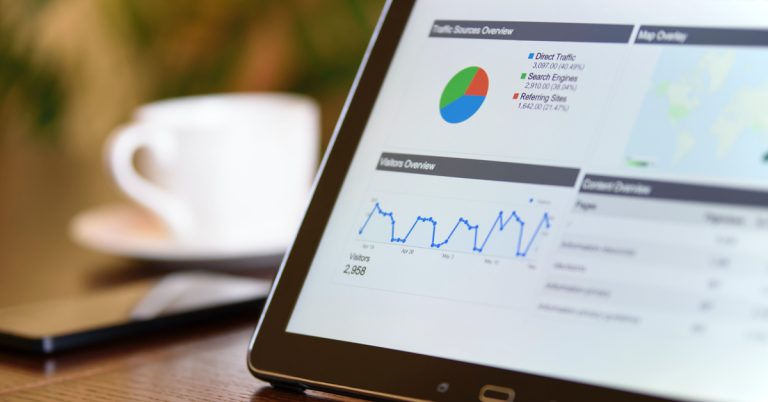Self-service analytics is characterized by the distributed ownership of the insight generation process and is not limited to simply extracting data from dashboards. Ideally, business professionals or analysts within a specific field would have the ability to work with data, create insights, and generate visualizations with minimal support from data scientists, IT personnel, or other members of the data team. However, while these individuals should provide support for the data product and its overall platform, they should not be directly involved in the analytics process.
Self-service analytics is crucial as it empowers both individuals and organizations to retrieve and scrutinize data without depending on IT or data analysts. This leads to quicker, more precise, and more adaptable decision-making, along with an enhanced understanding of vital business metrics.
Self-service analytics is here to stay for numerous compelling reasons, despite the possibility of its naming convention evolving over time.
Table of Contents
Self-Service Analytics is Vital for the Future of Work
Organizations that fail to embrace a culture of data sharing, including through self-service analytics, risk becoming outdated. In the future, successful organizations will integrate data sharing seamlessly into their daily business operations, rather than limiting it to occasional, isolated instances. By facilitating data accessibility across departments and teams, these organizations will enable prompt and well-informed decision-making, foster a culture of reuse, and unlock the potential for new use cases from data that was previously restricted to silos.
A Critical Element for Scaling AI Efforts beyond Tech Experts
The optimal approach to building a self-service analytics data product involves collaboration between technical data experts and business professionals. Through co-development, the product becomes more durable and can be scrutinized in detail, thereby allowing for its reuse in various ways.
As business users gain greater access to data and experts become more willing to incorporate the necessary business context and subject matter expertise, they are gaining more influence in collaborating with experts to build analytics workflows. Through this partnership between business users and technical professionals, along with acquiring new skills and access to effective tools, there is a faster path to achieving impactful outcomes.
Self-service analytics empowers organizations to provide every authorized individual with the ability to explore and utilize data, prepare it, and generate a data product. Additionally, data product creators can share their work with colleagues across various teams and departments, while non-data teams can improve access to valuable data insights, comprehend critical metrics, and simplify processes.
Unlocking the Next Level of Business Value by Involving Non-Data Experts
While self-service analytics is a crucial element for achieving success in data and analytics, implementing it alone may not always realize its full business value. Some organizations may view self-service analytics as a failed initiative or one with limited value, resulting in a disconnect between implementation and business value. Moreover, business users may feel unsupported and uncertain about whether they are utilizing the data correctly, which can lead to negative perceptions of self-service analytics.
To overcome these challenges and attain tangible business outcomes, organizations need to ensure that their self-service analytics endeavors –
- Have a solid foundation in comprehending the business and its requirements, considering specific challenges and obstacles while utilizing data to identify solutions that align with the business’s objectives and KPIs.
- Foster cooperation and interaction between IT and business teams.
- Follow appropriate governance and established protocols.
- Are sustainable and replicable for future projects, freeing up resources to identify new opportunities for value creation.
Breaking Down Silos and Enhancing Trust and Credibility
Self-service analytics requires careful consideration of several aspects of trust and credibility.
- Building confidence in employees’ ability to effectively utilize data in a self-service environment.
- Establishing faith in the data being used by business users through ongoing oversight of data quality, regular updates, proper formatting, and appropriate use.
- Building trust among managers and executives in the insights generated from self-service analytics initiatives.
Organizations must also build trust among managers and executives in the insights generated from self-service analytics initiatives. To achieve this, they need to balance control and agility by establishing robust governance practices for self-service analytics. This involves creating a flexible strategy that allows relevant access to data while restricting unnecessary access. Additionally, implementing a feedback mechanism enables users to request access they need to avoid data access issues that could hinder the project’s success. To strike this balance effectively, a centralized environment is ideal for managing and updating roles and rights as priorities and obligations evolve over time.
By breaking down silos and enhancing trust and credibility, organizations can empower their teams to become more efficient and competitive in the age of self-service analytics, business intelligence, and data-driven decisions.
Starting with Self-Service Analytics in the Age of AI
There is compelling evidence to support its continued relevance. By empowering non-technical users to analyze data and make informed decisions, self-service analytics can help organizations become more agile, efficient, and competitive in the AI era.













